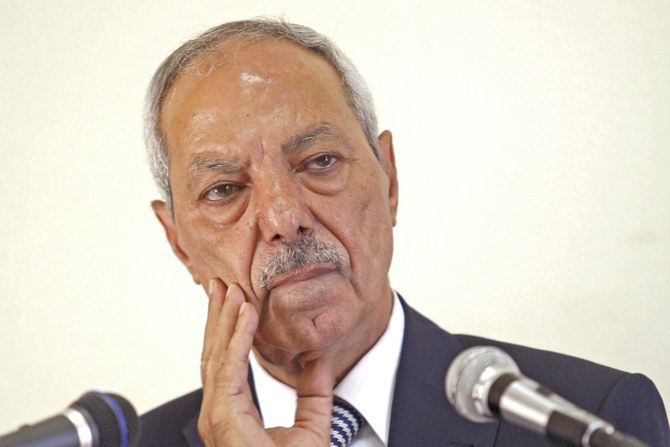BEIRUT: The press in Lebanon have said farewell to the former publisher and veteran editor-in-chief of As-Safir newspaper, Talal Salman, following his death in his hometown of Shmustar, in the Bekaa Valley, at the age of 85.
Salman, who was a Lebanese journalist, founded the daily As-Safir in 1974.
The newspaper carried the slogan “Lebanon’s newspaper in the Arab world and the Arab world’s newspaper in Lebanon.”
Salman’s project was one he initiated after years of experience working in journalism. Through the decades he became a world-renowned media figure in Arab and Lebanese affairs, influencing public opinion.
He was known for his probing interviews with the majority of Arab presidents, leaders and officials.
Among his most influential pieces were his editorials, called “On the Road,” which consistently supported the Palestinian cause and the issue of Arabism.
As the country became mired in civil war, As-Safir became a leading newspaper in Lebanon as it went head-to-head with the established An-Nahar.
It continued printing daily despite the Israeli siege of Beirut in 1982.
As-Safir was the voice of the Lebanese left wing, and the Palestinian national movement. It helped preserve a secular national identity within a prevailing sectarian reality, and also had to deal with the Syrian presence in Lebanon.
There was a failed attempt on Salman’s life in 1984, while further incidents involved attempts to blow up his home and bomb his newspaper’s printing presses.
Salman remained editor-in-chief of the paper until it closed at the end of 2016, in the face of alternative media and changes in the delivery of news.
Among his many accolades were the Posuvalyuk International Prize for reporting on events in the Middle East, and the Arab Media Forum’s 2009 Media Personality of the Year.
He also received an honorary doctorate from the Lebanese University in 2010 in recognition of his unique role in journalism, media and journalistic literature.
Former Prime Minister Fouad Siniora said Salman “was a unique and respected reference in the Lebanese and Arab press, and he was an example of courage in carrying the progressive Arab banner.”
He added: “When he realized that the circumstances no longer allowed the continuation of As-Safir on the same level it was issued, he had the courage to take the bitter decision to close the newspaper that was dearest to his heart.”
In its obituary, the Press Syndicate said: “He was betrayed by old age, but not by his pen, nor by his quest for the truth. For more than 60 years, he was a free person and a defender of freedom and liberation until the last drop of ink and blood.”
Head of the Lebanese Press Editors’ Syndicate Joseph Al-Qusaifi wrote: “Talal Salman succeeded in establishing a journalism school that was distinguished by its leadership.
“It mobilized within its building and offices creative journalists, specialists and reporters recognized for their experience, professionalism and the ability to penetrate closed fences and provide accurate information, so that his newspaper became one of the references to rely upon when searching for accurate news.”




























